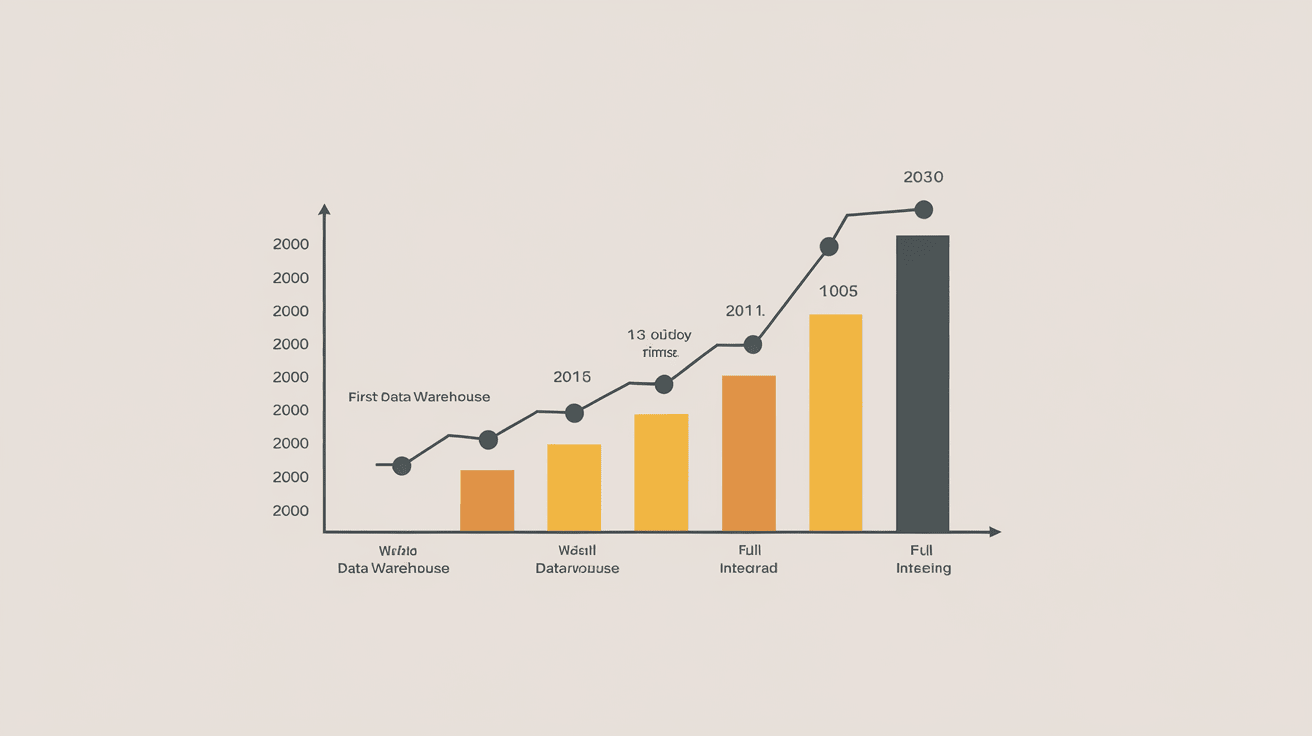The Role of Data Monetization in Banking

Introduction: The Strategic Value of Data Monetization in Banking
The banking and financial services industry is experiencing a data revolution. With the surge in digital transactions, mobile banking, and artificial intelligence-driven services, financial institutions are amassing vast amounts of data daily. This data, when analyzed and leveraged effectively, can become a significant source of revenue through data monetization.
Data monetization in banking refers to the practice of utilizing financial and behavioral data to generate revenue, either by selling insights derived from it or optimizing internal efficiencies. With Open Banking, AI, and machine learning (ML) models gaining traction, banks now have unprecedented opportunities to capitalize on their data assets while ensuring compliance with stringent regulatory requirements.
This article explores how banks can generate revenue through anonymized customer data, the benefits and challenges of data monetization, real-world applications, case studies, and the future of this transformative practice in fintech.
What is Data Monetization in Banking?
Data monetization in banking refers to the process of extracting economic value from data through direct or indirect means. There are two primary types:
- Internal Data Monetization: Banks use data to enhance decision-making, improve fraud detection, and personalize customer experiences.
- External Data Monetization: Banks sell aggregated and anonymized data to third parties, such as insurers, marketers, and investment firms, providing valuable insights while maintaining compliance with privacy regulations.
The financial sector holds some of the most valuable datasets, including customer demographics, transaction history, credit scores, and behavioral analytics, which, when anonymized, can be used to generate new revenue streams.
Benefits of Data Monetization in Banking
Data monetization offers several advantages to banks and financial institutions, including:
1. New Revenue Streams
- By selling anonymized transaction data to businesses, banks can generate revenue while providing businesses with consumer insights.
- Banks can create premium analytics services for fintech, investment firms, and retailers.
2. Enhanced Customer Experience
- Data analytics enables hyper-personalized banking experiences by offering customized financial products, credit scoring, and spending insights.
- AI-powered banking solutions, such as chatbots and robo-advisors, benefit from improved data analytics.
3. Improved Risk Management & Fraud Prevention
- Predictive analytics can identify fraud patterns and assess credit risk more accurately.
- Real-time transaction monitoring enhances security.
4. Regulatory Compliance and Transparency
- Data insights help financial institutions comply with Anti-Money Laundering (AML) and Know Your Customer (KYC) regulations.
- Open Banking and API integrations promote transparency.
5. Optimized Operational Efficiency
- AI-driven automation reduces manual intervention and enhances loan underwriting, customer segmentation, and marketing.
- Banks can improve operational efficiencies by analyzing employee productivity and customer interactions.
Challenges and Risks of Data Monetization in Banking
While data monetization presents immense opportunities, banks must navigate several challenges:
1. Regulatory and Compliance Risks
- GDPR (General Data Protection Regulation), CCPA (California Consumer Privacy Act), and PSD2 (Payment Services Directive 2) impose stringent rules on data privacy and consumer consent.
- Unauthorized sharing of customer data can lead to legal and reputational damage.
2. Data Privacy Concerns
- Customers are becoming more aware of data privacy rights, requiring banks to be transparent about how their data is used.
- Anonymization techniques must be robust to prevent re-identification of customers.
3. Data Security and Cyber Threats
- Cyberattacks and data breaches can result in financial loss and regulatory penalties.
- Strong encryption, access controls, and multi-factor authentication are required to secure data assets.
4. Ethical Considerations
- Banks must ensure that data is used ethically and responsibly to maintain customer trust.
- Avoiding discriminatory practices in credit scoring and financial services is crucial.
Real-World Applications of Data Monetization in Banking
Several leading banks and fintech firms are already leveraging data monetization strategies. Here are some notable examples:
1. JPMorgan Chase & Data-Driven Business Insights
- JPMorgan Chase offers anonymized transaction data analytics to retail and corporate clients to help them understand customer spending trends.
2. Wells Fargo & Open Banking APIs
- Through Open Banking, Wells Fargo shares aggregated financial data with third-party developers, enabling new fintech innovations.
3. Mastercard’s Data & Services Division
- Mastercard provides anonymized transaction insights to governments, merchants, and financial institutions to optimize pricing strategies and economic forecasting.
4. BBVA’s Data Monetization via BBVA API Market
- BBVA launched an API-based platform that allows third parties to access anonymized financial data for improved analytics and decision-making.
5. American Express & Alternative Credit Scoring
- By leveraging transactional data, American Express enhances its alternative credit scoring models to assess loan eligibility for underserved populations.
Emerging Technologies Shaping Data Monetization in Banking
1. Artificial Intelligence & Machine Learning
- AI-powered models predict customer behavior and identify fraud in real time.
- ML-driven financial products customize investment and lending decisions.
2. Blockchain for Secure Data Transactions
- Decentralized identity management enhances security and data privacy in Open Banking.
- Smart contracts enable safe and controlled data sharing.
3. Data Lakes & Cloud Computing
- Cloud-based data lakes help banks store, process, and analyze massive datasets securely.
- AWS, Google Cloud, and Microsoft Azure enable scalable data monetization solutions.
4. Privacy-Preserving Techniques
- Homomorphic encryption allows banks to share data insights without exposing sensitive customer information.
- Federated learning enables collaborative AI training without data transfer.
Future of Data Monetization in Banking
The future of data monetization in banking will be shaped by evolving regulations, emerging technologies, and customer preferences. Key trends include:
1. Shift Toward Consent-Based Data Sharing
- Banks will implement more transparent data-sharing policies that allow customers to control how their data is used.
2. Rise of Embedded Finance
- More non-financial companies will integrate banking services using APIs and data monetization models.
3. Expansion of Alternative Credit Scoring
- Banks will increasingly rely on alternative financial data to assess creditworthiness, enabling financial inclusion.
4. AI-Driven Hyper-Personalization
- Advanced AI will power real-time customer insights, enhancing marketing strategies and financial planning.
Conclusion: Strategic Adoption of Data Monetization in Banking
Banks must balance revenue generation, data privacy, and regulatory compliance to successfully implement data monetization. While challenges exist, the benefits of leveraging anonymized customer data for new business models, enhanced security, and customer engagement far outweigh the risks. By investing in secure data infrastructure, AI-driven analytics, and ethical data-sharing frameworks, banks can position themselves as leaders in the data economy.
#DataMonetization #FinTech #BankingInnovation #AIinBanking #FinancialData #BankingTrends #DataSecurity #AIAnalytics #OpenBanking #BankingTechnology #FinTechTrends #DataDriven #MachineLearning #RegTech #CyberSecurity #DataPrivacy #BankingInsights #FinancialInclusion #DigitalTransformation #FinanceIndustry

Introduction Data warehousing has played a pivotal role in the evolution of banking technology. As banks handle enormous volumes of…

Introduction The rapid growth of digital banking, financial technology (FinTech), and data-driven decision-making has created a pressing need for scalable…